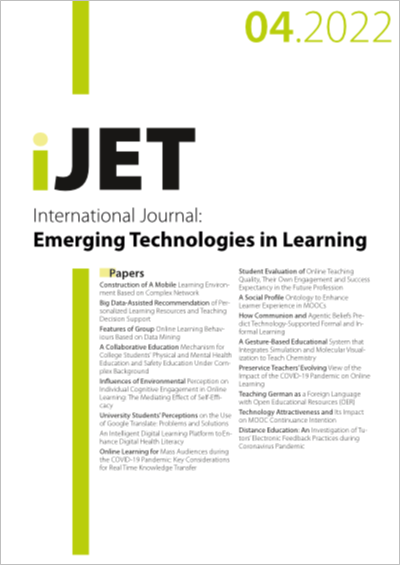The Technology Attractiveness and Its Impact on MOOC Continuance Intention
DOI:
https://doi.org/10.3991/ijet.v17i04.28853Keywords:
MOOC, expectation confirmation model, technology attractiveness, continuance intentionAbstract
Massive Online Open Course (MOOC) is a web-based interactive online learning medium that allows users to take its courses and get completion certificates. The number of MOOC users does not run straight with the total rate of course completion. This is due to various user reasons, such as just to search for specific materials or sources without completing the course. Until now, there are still few studies that discuss the continuance intention to use MOOC. Thus, this study aims to evaluate a user’s desire to keep learning using MOOC in zenius.net with a combination of technology attractiveness theory and expectation confirmation model. A quantitative study was conducted by distributing questionnaires to 164 respondents. The result shows that a user's desire to keep learning through MOOC was directly influenced by the level of user satisfaction. User satisfaction is directly affected by perceived benefits as well as the user's evaluation of his or her expectations on MOOC. The benefits felt by users are directly affected by Task Attractiveness and the user's evaluation of his or her expectations on MOOC. While the user's evaluation of his expectations on MOOC is directly influenced by the three factors of Technology Attractiveness, namely Task Attractiveness, Social Attractive-ness, and Physical Attractiveness.
Downloads
Published
How to Cite
Issue
Section
License
Copyright (c) 2022 Syahrul Alam Suriazdin, Achmad Nizar Hidayanto, Mutia Maulida, Alverio Yosephine Kurtinus, Hanifa Arrumaisha, Nurul Aisyah, Rico Putra Pradana

This work is licensed under a Creative Commons Attribution 4.0 International License.


